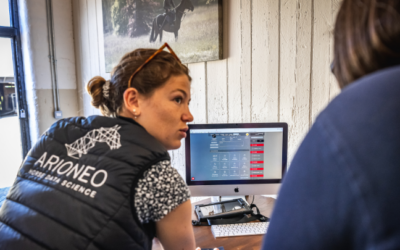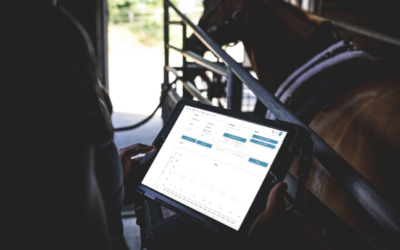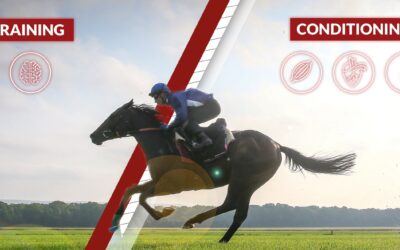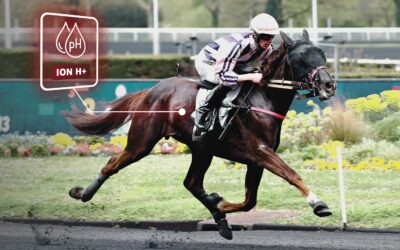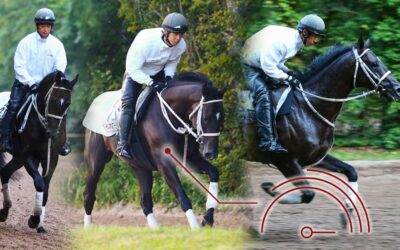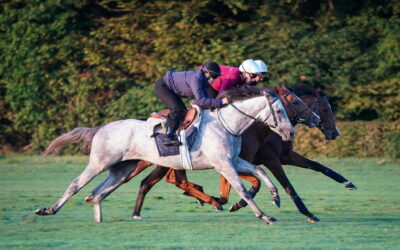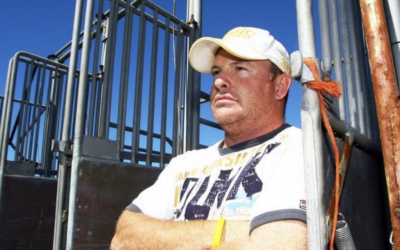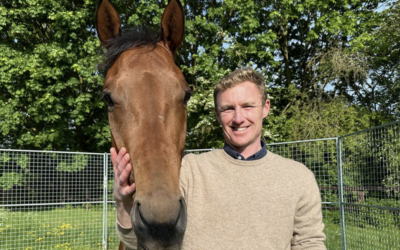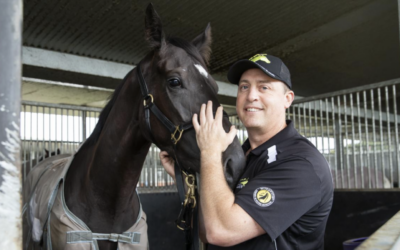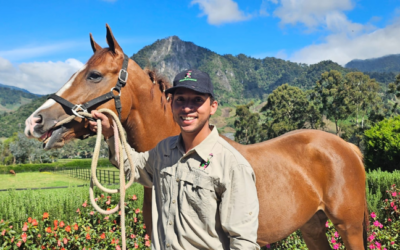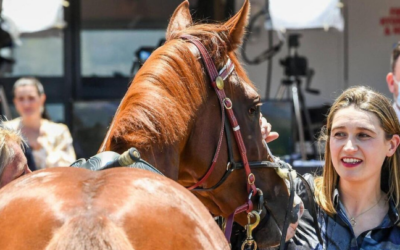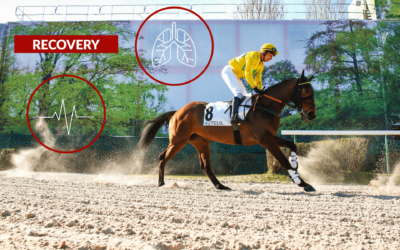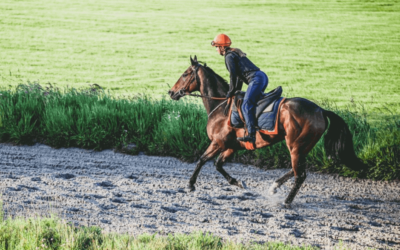EXPLORE OUR BLOG
Here you will find a lot of information to better understand performance and health measurements as well as tips about racehorse training and well-being.
LATEST ARTICLES
How to get started with data collection?
In the horseracing industry, more and more trainers and owners are exploring the combination of human intuition and data science to optimize the performance and well-being of their horses.
Tom Charlton & John O’Shea: revolutionizing training techniques using Equimetre data
Tom Charlton shares his experience and views on the growing importance of data in racehorse training
8 reasons to do the Essentials program
Data is revolutionising equestrian sports and racing. the Essentials training is the ideal introduction for trainers, riders and equine science enthusiasts.
How the Advanced program helped Nick Pinkerton with equine performance and analysis
In this interview, Nick Pinkerton reflects on his career, his involvement in the Advanced program, and his ambitions to revolutionize equine performance analysis through data science.
Dashboard Vet, launch of a new feature: ECG sharing and analysis
Arioneo is launching a new feature that makes it easier to share and analyse your horse’s ECG with your vet.
In Chantilly, Tim Donworth talks about the EQUIMETRE innovation serving equine performance
Tim Donworth, a young Irish trainer based in Chantilly for nearly three years, shares his experience and modern vision of racehorse training with EQUIMETRE.
BROWSE AMONG OUR CATEGORIES

Equine Physiology

Testimonials

Racehorse training
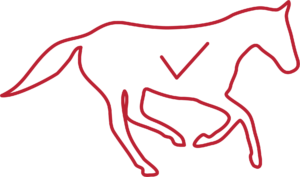
Young racehorses
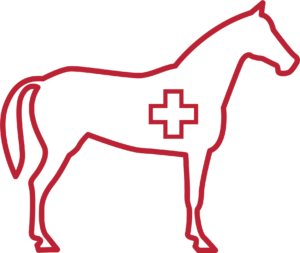
Health & Science
Standardbreds
EQUINE PHYSIOLOGY
Conditioning vs training: what are the differences in horses?
Conditioning and training are terms that could be confused. Although both terms lead to an improvement in the horse’s abilities, they do not have the same effects on the horse. This article explains the principle of conditioning and its effects, as well as those of training.
The acid-base balance during exercise
During exercise, the acid-base balance of the horse’s body is perturbed. By using more oxygen and energy, his metabolism produces waste products that acidify his body. The body then naturally regulates its pH level in order to maintain this acid-base balance. How does the horse’s acid-base balance work during exercise?
Exercises of varying intensity: what effect on the horse?
During exercise of varying intensities, the different systems of the horse’s body adapt their functioning. In this article we will look at these changes through the respiratory, cardiovascular and muscular systems.
Racehorse’s three main physiological systems: roles and functions
The horse’s body has three key systems to ensure its proper functioning: the respiratory, cardiovascular and muscular systems.
How do these metabolisms work? What roles do they play in the horse’s body?
What is the influence of training on a racehorse’s cardiovascular system?
The horse’s cardiovascular system allows good blood circulation and ensures oxygen transport. How does the horse improve it?
Thermoregulation in horses: how do they regulate their body heat?
Thermoregulation in horses is the set of mechanisms that allow them to maintain a desired temperature. How does it work?
RACEHORSE TRAINING MONITORING
Giordana Girini, integrating the Advanced program into her vision of a future data analyst
Giordana, an equine science and osteopathy enthusiast, tells us about her journey, her experience with the Advanced program, and how she integrates data into her daily life.
How Jarrad Cook, data analyst at Kris Lees Racing improved his data knowledge with the Advanced program
Jarrad Cook, data analyst at Kris Lees Racing in Australia, shares his experience of the Advanced program and how he uses the Equimetre in his daily work.
Laura Fitzharris: how does the Advanced program integrate her veterinary practice?
Laura tells us how the Advanced program has enriched her veterinary practice and enabled her to integrate data into the monitoring of athlete horses.
Equine technology: Better understand your horses with Arioneo data, Darryl Ward’s EQUIMETRE experience
In this interview, find out how Deagon trainer Darryl Ward has integrated equine technology into his training with EQUIMETRE.
Preparing Isle Of Jura with data – From Newmarket: George Scott’s Equimetre experience
World Horse Racing is an international digital media company specialising in racehorses.
In partnership with them, we have produced a video of George Scott and his use of the Equimetre, particularly in preparation of Isle of Jura.
In Brisbane: Tony Gollan’s Equimetre experience.
From his journey with data collection to the benefits of using EQUIMETRE, Tony shares how data-driven decisions have enhanced his training outcomes.
EQUINE HEALTH & SCIENCE
Jose Gutierrez & the Advanced program : Enhancing horse training with data analysis
In the world of horse racing, success is often attributed to instinct, experience, and tradition. However, Jose Gutierrez is proving that data analytics is the next frontier in optimizing performance and ensuring equine well-being.
Caroline Jennings & the Advanced program: revolutionizing equine research
Caroline Jennings, expert trainer in biomechanics and equine research, integrates cutting-edge analysis to optimize horse performance and well-being.
How to get started with data collection?
In the horseracing industry, more and more trainers and owners are exploring the combination of human intuition and data science to optimize the performance and well-being of their horses.
YOUNG RACEHORSES MONITORING
Young racehorses’ recovery
Young horses do not have the same recovery patterns as older horses, even for equal intensity training or between two horses with equivalent fitness. Indeed, young horses have a less efficient heart and must adapt their muscular and neurological systems to the training conditions. They need time to adapt before they can recover properly. The evaluation of recovery in young horses is therefore done differently. How do recovery data differ between young horses and adult horses? How do you assess it?
Physiological changes in the young racehorse
Many physiological and musculoskeletal changes may be seen in young Thoroughbreds as early as the first weeks and months of training.
7 reasons to monitor young racehorses
Broken in and pre-trained, the young horses are ready to start their sporting career and start racing. This first period of work is crucial for the horse’s career. Collecting and analysing data from the very beginning of their training brings many benefits.
STANDARDBREDS TRAINING
No Results Found
The page you requested could not be found. Try refining your search, or use the navigation above to locate the post.
TESTIMONIALS
Jose Gutierrez & the Advanced program : Enhancing horse training with data analysis
In the world of horse racing, success is often attributed to instinct, experience, and tradition. However, Jose Gutierrez is proving that data analytics is the next frontier in optimizing performance and ensuring equine well-being.
Caroline Jennings & the Advanced program: revolutionizing equine research
Caroline Jennings, expert trainer in biomechanics and equine research, integrates cutting-edge analysis to optimize horse performance and well-being.
Tom Charlton & John O’Shea: revolutionizing training techniques using Equimetre data
Tom Charlton shares his experience and views on the growing importance of data in racehorse training

